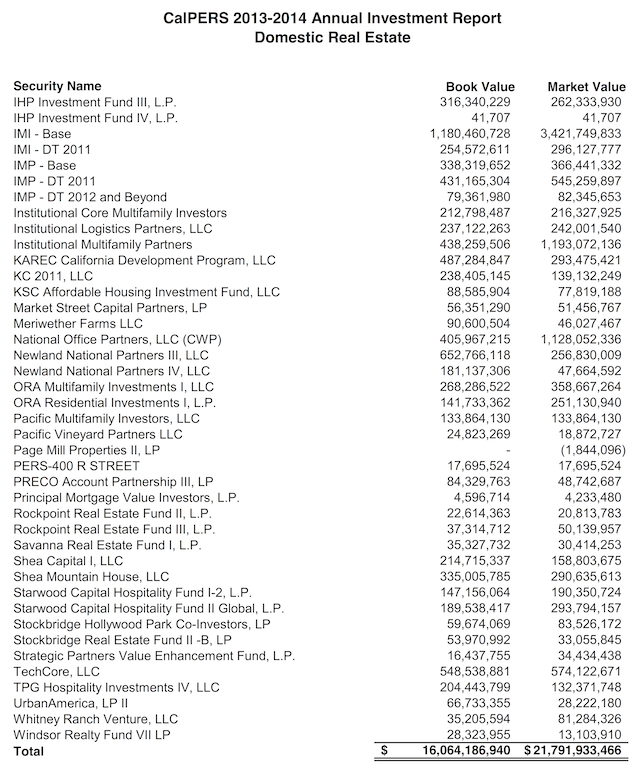The $303 billion California Public Employees’ Retirement System (CalPERS) has revealed the next target of its manager-reduction mission: Real estate.
The fund plans to sell up to $3 billion of its $25.5 billion portfolio by the end of the calendar year, it announced Tuesday.
Park Hill Group, a placement agent and secondaries specialist, has been hired to help facilitate the sale. Part of the Blackstone Group, the New York-based firm is already seeking offers for the pool of international and domestic property investments.
The fund did not reveal which specific assets are in play, but its latest investment report lists allocations to some major managers (BlackRock, Fortress Investment Group, CBRE), hotel funds (Starwood Capital, TPG Hospitality), luxury developers (IMI), and a host of others.
“The portfolio being offered holds assets that no longer align with the strategic goals of the real estate program,” CalPERS said, noting that the total amount on offer could vary based on market conditions and demand.
“The sale of these assets represents the continued effort to reduce costs, risk, and complexity across the CalPERS fund,” said Paul Mouchakkaa, senior investment officer for real assets. “For the real estate program it will enable us to invest in assets and managers that are more aligned with our current strategy.”
Once completed, the transaction would mark CalPERS’ first move in its plan to cut external manager relationships roughly by half. At present, the fund invests about 200 outside firms, and said it is aiming to winnow that down to approximately 100 “larger and more strategic relationships” by 2020.
Related:CalPERS Plans to Cut Managers by 50% & CalPERS Throws Weight Behind Mega-Managers, Successful Startups

 Source:
Source: